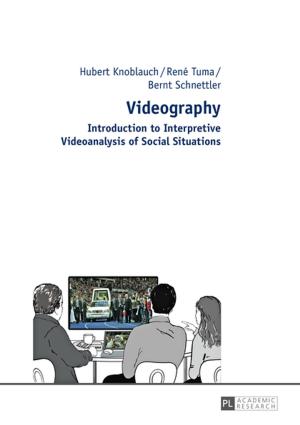Bourdieu and Data Analysis
Methodological Principles and Practice
Nonfiction, Social & Cultural Studies, Social Science, Methodology, Art & Architecture, General Art, Sociology| Author: | ISBN: | 9783035399264 | |
| Publisher: | Peter Lang | Publication: | February 5, 2014 |
| Imprint: | Peter Lang AG, Internationaler Verlag der Wissenschaften | Language: | English |
| Author: | |
| ISBN: | 9783035399264 |
| Publisher: | Peter Lang |
| Publication: | February 5, 2014 |
| Imprint: | Peter Lang AG, Internationaler Verlag der Wissenschaften |
| Language: | English |
Uniquely amongst the numerous publications to appear on the work of the French social theorist Pierre Bourdieu, this book deals with data analysis, examining a range of techniques and instruments. After an introductory chapter outlining the key principles of Bourdieu’s theory, the book presents detailed examples of data being collected and analysed in a Bourdieusian way across various social science contexts. Both qualitative and quantitative methods are addressed, including analysis of the strengths and weaknesses of each method, as are common data collection procedures such as interview, observation and questionnaire. Examples of Multiple Correspondence Analysis are an important feature of the book, since this was an approach particularly favoured by Bourdieu. In each case study, the pros and cons of different approaches are highlighted and the qualitative/quantitative debate is thoroughly explored. Overall, the book offers readers a blueprint to develop their own methodological plans for using Bourdieu in research practice.
Uniquely amongst the numerous publications to appear on the work of the French social theorist Pierre Bourdieu, this book deals with data analysis, examining a range of techniques and instruments. After an introductory chapter outlining the key principles of Bourdieu’s theory, the book presents detailed examples of data being collected and analysed in a Bourdieusian way across various social science contexts. Both qualitative and quantitative methods are addressed, including analysis of the strengths and weaknesses of each method, as are common data collection procedures such as interview, observation and questionnaire. Examples of Multiple Correspondence Analysis are an important feature of the book, since this was an approach particularly favoured by Bourdieu. In each case study, the pros and cons of different approaches are highlighted and the qualitative/quantitative debate is thoroughly explored. Overall, the book offers readers a blueprint to develop their own methodological plans for using Bourdieu in research practice.















